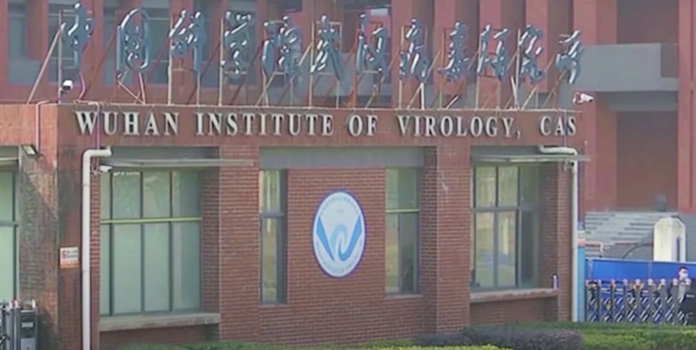(Ken Silva, Headline USA) Non-profit research organization EcoHealth Alliance knew by 2019 that its coronavirus bat research in Wuhan met certain risk thresholds that should have been reported to the U.S. National Institutes of Health, but EcoHealth failed to report its results until more than two years after the fact, according to a new report from the Department of Health and Human Services-Office of Inspector General.
The HHS-OIG report, released Wednesday, found that the NIH and EcoHealth failed to properly track research they were funding at the Wuhan Institute of Virology, which is located in the city where the Covid-19 pandemic began.
The HHS-OIG report examined about $8 million of grants the NIH gave to EcoHealth, including its infamous May 2014 $3.7 million award for “Understanding the Risk of Bat Coronavirus Emergence.”
As has been previously reported, the NIH required EcoHealth to notify it if the bat coronavirus research resulted in virus growth that met specified thresholds. The thresholds were in place to prevent research from resulting in “enhanced potential pandemic pathogens,” which are bacteria, viruses and other micro-organisms that are likely highly transmissible and capable of wide, uncontrollable spread in human populations.
It turned out that by 2019, EcoHealth’s bat coronavirus research was indeed meeting certain thresholds that would have triggered greater NIH oversight, according to the new HHS-OIG report. However, EcoHealth didn’t disclose this until 2021, according to the report.
“EcoHealth submitted its Year 5 progress report late and the report involved research that NIH believed resulted in a virus with enhanced growth … Not until after NIH requested the progress report in July 2021 did EcoHealth submit the progress report on August 3, 2021—nearly 2 years late,” the report said.
The HHS-OIG further said that a complete investigation of the bat coronavirus research conducted in Wuhan can’t be conducted, because the Chinese government is not cooperating with any investigations.
“[Wuhan Institute of Virology’s] lack of cooperation with the international community following the COVID-19 outbreak—consistent with the response from China—limited EcoHealth’s ability to monitor its subrecipient, and greater transparency is needed about information from [Wuhan Institute of Virology],” the report informed.
Despite the anomalies spotted by the HHS-OIG, the report noted that “NIH informed us that it does not believe that [its research] is associated with severe acute respiratory syndrome coronavirus 2 (SARS-CoV-2) or the COVID-19 pandemic.” The HHS-OIG added that its report did not assess scientific results or make any determination regarding the accuracy of NIH’s or EcoHealth’s interpretations of their research results.
In response to the report, EcoHealth told the HHS-OIG that it did, in fact, attempt to notify the NIH about its risky coronavirus bat research in July 2019—but that technical issues with NIH’s computer systems prevented the report from being properly uploaded.
The HHS-OIG report replied to EcoHealth’s response by stating that “we have no evidence that the progress report was fully uploaded to the online portal at that time.
“Furthermore, we have no evidence that there was any correspondence between EcoHealth and NIH describing technical difficulties with uploading the progress report on time,” the report added, concluding, “Ultimately, the progress report was not submitted until August 2021.”
The HHS-OIG report comes as the House Select Subcommittee on the Coronavirus Pandemic is set to investigate the origins of Covid-19. The report also follows a similarly damning audit released last week by the Government Accountability Office, which found that HHS “does not fully meet the key elements of effective oversight” for gain-of-function research.
Ken Silva is a staff writer at Headline USA. Follow him at twitter.com/jd_cashless.

